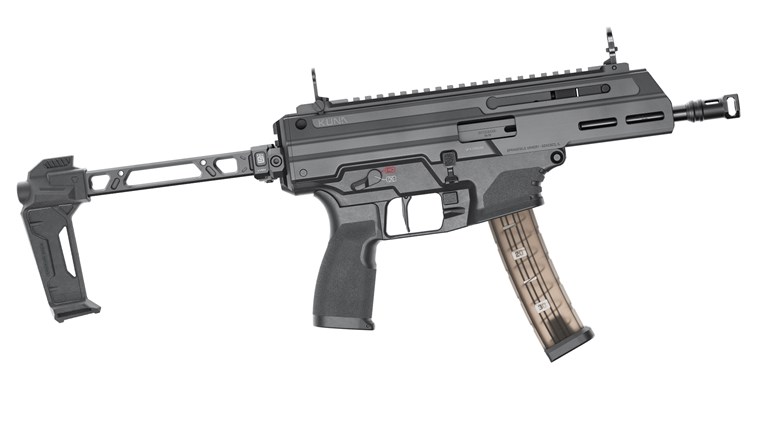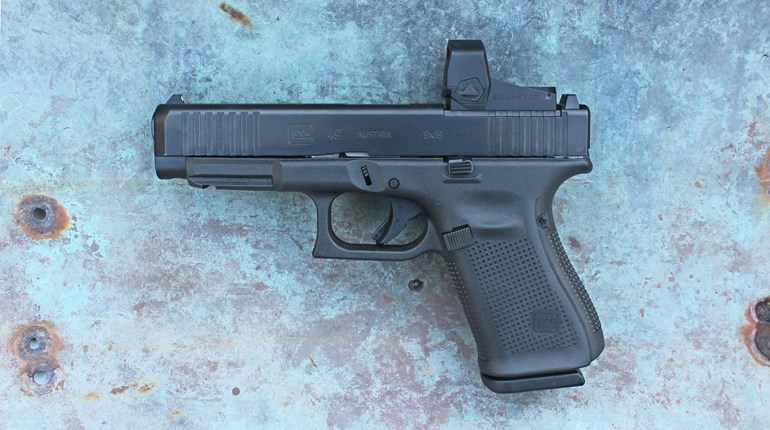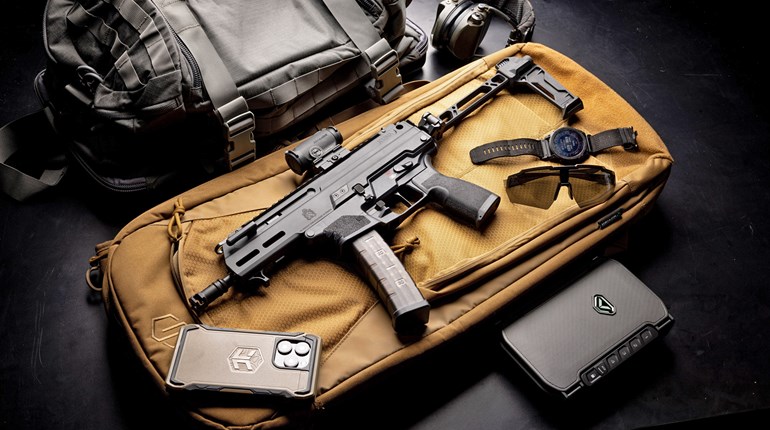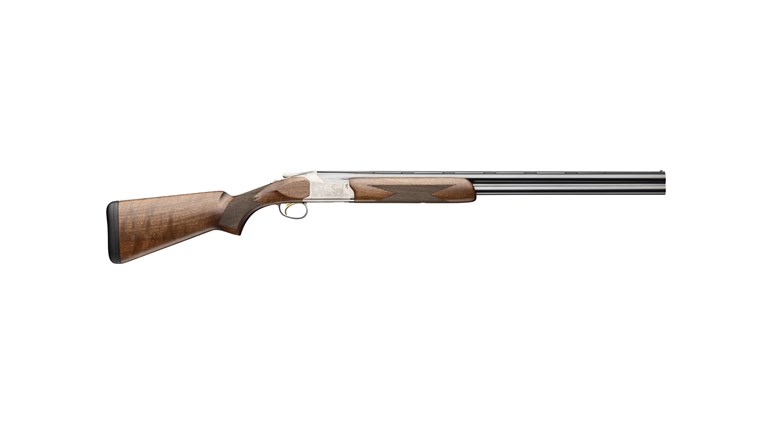
Though many suppressor makers hit the brakes on R&D after the Hearing Protection Act stalled in Congress, innovative new products like the Odessa-9 from Dead Air Armament are still being introduced.
The Odessa-9 is one of the more-unusual 9 mm pistol suppressors on the market. Its modular design, where individual baffle sections thread together, allows the suppressor to be configured in different lengths, one section at a time. With 11 baffle sections, each one is numbered, and the order and alignment must be followed when configuring the can. Adding or removing a single section won’t impact the pistol’s perceptible sound level, so this minute level of adjustment may seem over-engineered. However, such a design allows a user to store a ready-to-use pistol with mounted suppressor of optimal length into fixed storage or transport spaces.

Baffles are durably made from 17-4 PH stainless steel and finished in black nitride for abrasion and corrosion resistance. To prevent the sections from loosening during recoil, the threads seat on a tapered edge. The Odessa-9 shows exceptional workmanship and attention to detail—for which the company is known—especially in the fit of the piston and baffle sections.
The relatively small diameter (1.1 inches, to be exact) affords a usable sight picture with the native sights on most pistols. A more-typical 1.375-inch-diameter can, in contrast, obstructs the sight picture and leaves you with only two solutions to achieving a precise aim: mount a red-dot optic to the slide or change to suppressor-height sights. However, these solutions aren’t practical for many shooters. Suppressor-height sights aren’t widely available and can interfere with holsters, while optical sights are expensive and come with their own set of challenges.

Internal volume is a determinant of a suppressor’s noise reduction, and Dead Air’s engineers compensated for this loss of space over conventional-diameter suppressors in a few key areas. Dual O-rings surround the piston to capture gas leakage in this main area, while the bore diameter of each clipped-cone baffle is tighter and closer to the muzzle. The design is tubeless to conserve volume and the Odessa-9’s maximum length is 8.6 inches—slightly longer than comparably effective, 1.375-inch-diameter units.

I tested the Odessa-9 in its longest configuration on the Beretta APX Combat. The APX has low-profile sights, which did not entirely clear the baffle stack, but still provided a workable sight picture.
Function testing was conducted with three loads: 115-grain FMJ loads from Winchester and Remington, and Winchester WinClean 147-grain TMJ subsonic loads. There was no apparent change in bullet impact when using the Odessa-9, nor was there a change after removing and reattaching it several times. Shooting offhand, group sizes with the Odessa-9 were usually tighter due to its dampening wobble and recoil.

There were no stoppages, even when firing with a limp-wrist grip with the pistol pointed downward, which underscores the effectiveness of the booster mechanism and the compatibility of the APX/Odessa-9 as a system. Though most shooters won’t fire upon targets from above, this test is used by the military in its suppressor evaluations. Should the host pistol’s functioning become impaired—or the user wishes to tune its function with various loads and suppressor lengths—the Odessa-9 comes with two shims that adjust the booster spring. This is an unusual and added benefit to the consumer, particularly those who install a drop-in threaded barrel thinking their pistol will still function perfectly with a suppressor. It may or may not because there are other aspects (e.g. recoil spring, dwell time, time to unlock) which can impact a handgun’s reliability with a suppressor attached to its muzzle. The shims mitigate potential incompatibility with your pistol.
Though the full-length Odessa-9 makes the system close to 17 inches in length, the test pistol did not seem muzzle heavy. Backpressure was apparent with every load, but only irritating to the face and firing hand using the 115-grain loads, while the 147-grain WinClean was pleasant to shoot. Using a shorter configuration will reduce backpressure noticeably.
There was generally no audible first-round pop, but when present, it was negligible.

One final note: read the entire operator’s manual—even if you are knowledgeable about suppressors. The Odessa-9’s unique construction entails procedures outside the norm, such as cleaning and lubricating the baffle and end-cap threads after each use. These procedures are intended to prevent the baffles from cementing themselves together from carbon and lead buildup, which could result in damage by having to apply excessive torque later during disassembly. The manual also provides cautionary guidance on using ultrasound cleaners and torque limits when joining baffle sections. Treated as it should be, this adaptive-length and high-quality suppressor should provide years of reliable service and effective noise reduction.



































